MercoPress. South Atlantic News Agency
Latin America
-
Saturday, December 5th 2009 - 02:56 UTC
Mosquito transmitted dengue is back in Paraguay with 59 reported cases
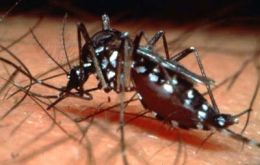
Paraguay has admitted 59 cases of the mosquito transmitted disease dengue mostly concentrated in the north of the land-locked tropical country.
-
Saturday, December 5th 2009 - 02:43 UTC
Bolivian natural gas revenue forecasted to drop a third because of price factor
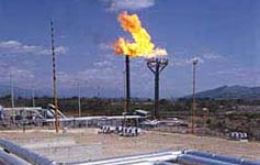
Bolivia’s revenue from natural gas exports will reach this year 2 billion US dollars, which is a billion less that the 3.1 billion reported in 2008, according to the country’s Hydrocarbons Chamber, CBH.
-
Friday, December 4th 2009 - 08:07 UTC
Bolivian electorate loves President Morales but Senate is in doubt
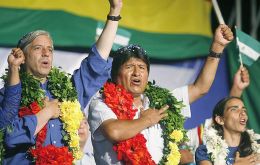
Bolivian president Evo Morales is expected to be easily re-elected on Sunday but is desperately fighting to ensure a two thirds majority in the Senate which would enable him to pass a hundred bills to continue with the political and economic reforms he has pending from his first mandate.
-
Friday, December 4th 2009 - 08:04 UTC
Iran trebled trade with Latinamerica in 2008 reaching 2.9 billion USD
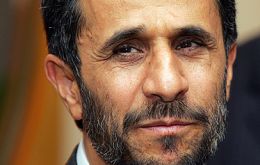
Iran has trebled trade with Latinamerica and Argentina has become its second partner in the region (replacing Mexico) according to Latin Business Chronicle based on data form the International Monetary Fund.
-
Friday, December 4th 2009 - 05:01 UTC
Promotion of Sustainable Tourism on Chile’s Easter Island
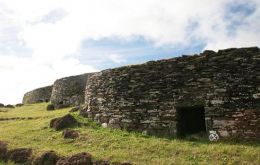
The US World Monuments Fund, together with Chile’s forestry agency CONAF, has designed a visitors’ centre on Easter Island to enhance sustainable tourism. The project, valued at more than 460.000 USD, will be built at the entrance to the ceremonial village of Orongo.
-
Friday, December 4th 2009 - 04:54 UTC
Chilean government defends arms’ purchases: 6 billion USD since 1990
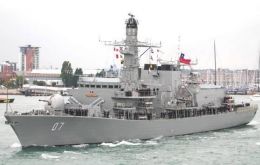
Chile does not want to start an arms race, nor does it have aggressive intentions toward its neighbours.
-
Thursday, December 3rd 2009 - 13:27 UTC
Honduras overwhelmingly votes against reinstatement of Zelaya

Honduras’ Congress overwhelmingly voted Wednesday against the reinstatement of ousted President Manuel Zelaya, a move that closes the door on his return to power after he was toppled in a June coup.
-
Thursday, December 3rd 2009 - 08:29 UTC
All ready for the Argentina-Chile bicentennial (Dakar) rally

Dakar rally director Etienne Lavigne celebrated Wednesday in Buenos Aires that the coming 2010 edition of the world event will coincide with Argentina and Chile commemoration of their second bicentennial as nations.
-
Thursday, December 3rd 2009 - 08:27 UTC
Venezuela shuts down banks belonging to former Chavez crony
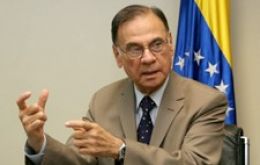
The Venezuelan government has shut down four private banks, accusing them of financial irregularities. The closures come 10 days after the authorities took over the banks on suspicion of violating regulations.
-
Thursday, December 3rd 2009 - 00:55 UTC
Brazil to reconsider the latest events in Honduras
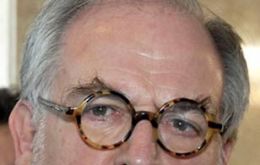
Brasilia runs the risk of “isolation” if it does not recognize Honduras presidential elections according to Brazilian member of Congress Raul Jungmann, the only representative from his country to be part of an observers’ international committee on Sunday’s ballot.
